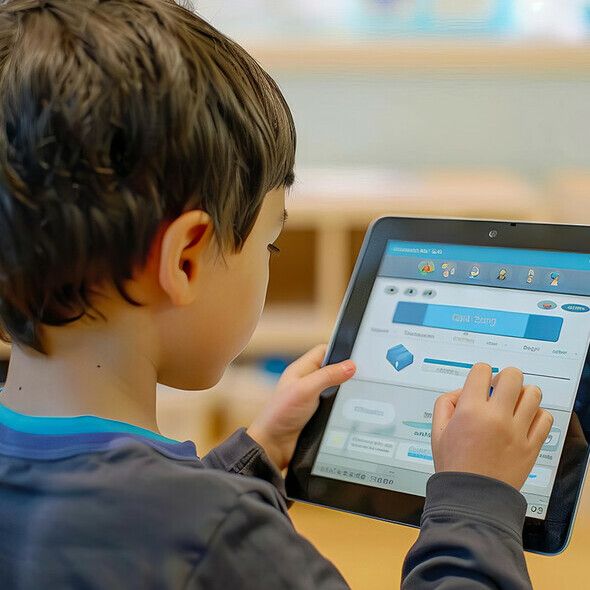
Empowering Student Voices at the CAfLN Conference
On Oct. 4, 14 students from Canadian Rockies Public Schools (CRPS) will take center stage at the Canadian Assessment for Learning Network (CAfLN) Conference in Canmore. Representing Gr. 4 through 12, these students are set to share their perspectives on assessment through a student panel, offering educators nationwide the valuable opportunity to uncover what’s working, what's not working, and how they can best support students through effective assessment strategies.
“The theme of the CAfLN conference, “Assessment as Communication: Let’s Talk,” emphasizes the importance of including student voices in conversations about effective assessment practices,” said CRPS’ Deputy Superintendent Debbie McKibbin. “As educators listening to our students share their personal stories and insights, it is imperative we reflect on the impact of our assessment choices and strive to create a more supportive, equitable learning atmosphere in our classrooms.”
In preparation for the event, the students engaged in a pre-conference activity in late September organized by the Calgary Regional Consortium’s Cheryl Babin and CRPS’ Lead Teacher Darin Larson. During this session, students openly shared their thoughts about assessment, revealing a spectrum of emotions, including “excitement”, “stress,” “anxiety,” and “hopefulness.” Every student expressed a desire for more project-based learning and collaborative group work instead of traditional testing methods, indicating the need for assessment strategies that are authentic, accurate and resonate with their diverse learning styles. Their insights can be seen in the following chart, which summarizes their responses to various questions posed during the session:
|
Question |
Student Responses |
|---|---|
|
What WORDS come into your mind when you hear ASSESSMENT? |
Exemplary, proficient, progressing, not yet, formative, summative, exams, quiz, grades, check-in, tests, evidence, rubrics. |
|
What do you wish your parents knew about assessment? |
I wish they knew that I have to be there to determine my future. Sometimes my work is better than a test. It’s much more stressful than it seems. It is not always fully representative of where you are at. It is different from when they were kids. I wish they could come to school and see how I learn and what I learn. Some days are better than others so sometimes the assessment doesn’t reflect my abilities. |
|
What FEELINGS come into your mind when you hear ASSESSMENT? |
Hopefulness, nervous, anxious, worry, stress, confused, excitement for it to be over but stressed for the start. |
|
If you could redesign school, how would we know what students have been learning? |
Instead of final exams, have projects on subjects rather than tests. More group assignments. Have multiple methods of assessment since everyone learns differently. |
How do you feel about REPORT CARDS? |
Stressed, good check-in spot, summary, full of suspense, worried about grades. |
What is your FAVOURITE way to demonstrate your learning? |
Group projects, hands-on learning, talking about the topic with friends, activities, teaching someone else. |
|
What do you wish your teachers knew about assessment? |
Different ways work for different people. Assessments aren't always accurate representation of learning. |
CRPS' takeaways from the preparatory session reveal critical insights into students’ assessment experiences. Through their articulation of words associated with assessment, such as “exemplary,” “formative,” and “summative,” students illustrated their profound understanding of contemporary assessment practices, and the nuances involved. They also conveyed a deep need for their parents to recognize the significant pressures associated with assessment, emphasizing that traditional testing does not always reflect their true capabilities. Their desire for greater communication highlights the importance of parents understanding their learning processes and the emotional challenges they encounter. This insight further outlines the necessity for a collaborative relationship between home and school to foster a supportive environment that prioritizes student well-being.
As CRPS staff members prepare to attend the CAfLN conference, the insights gathered from the student panel will undoubtedly inform discussions about effective assessment practices. Approximately 40 educators will be participating, eager to learn from prominent experts in the field and explore innovative classroom strategies. The conference features keynote speakers and breakout sessions designed to foster a culture of continuous improvement in assessment practices, ensuring that the perspectives of students remain central to educational discussions.
“By giving our students a platform to express their insights, we are not just enhancing our assessment practices; we are empowering them to take ownership of their educational journeys,” stated McKibbin. “This commitment to student voice reflects our division’s core philosophy, where fostering engagement is essential to creating supportive and effective learning environments for all.”
BACK TO ALL NEWS






